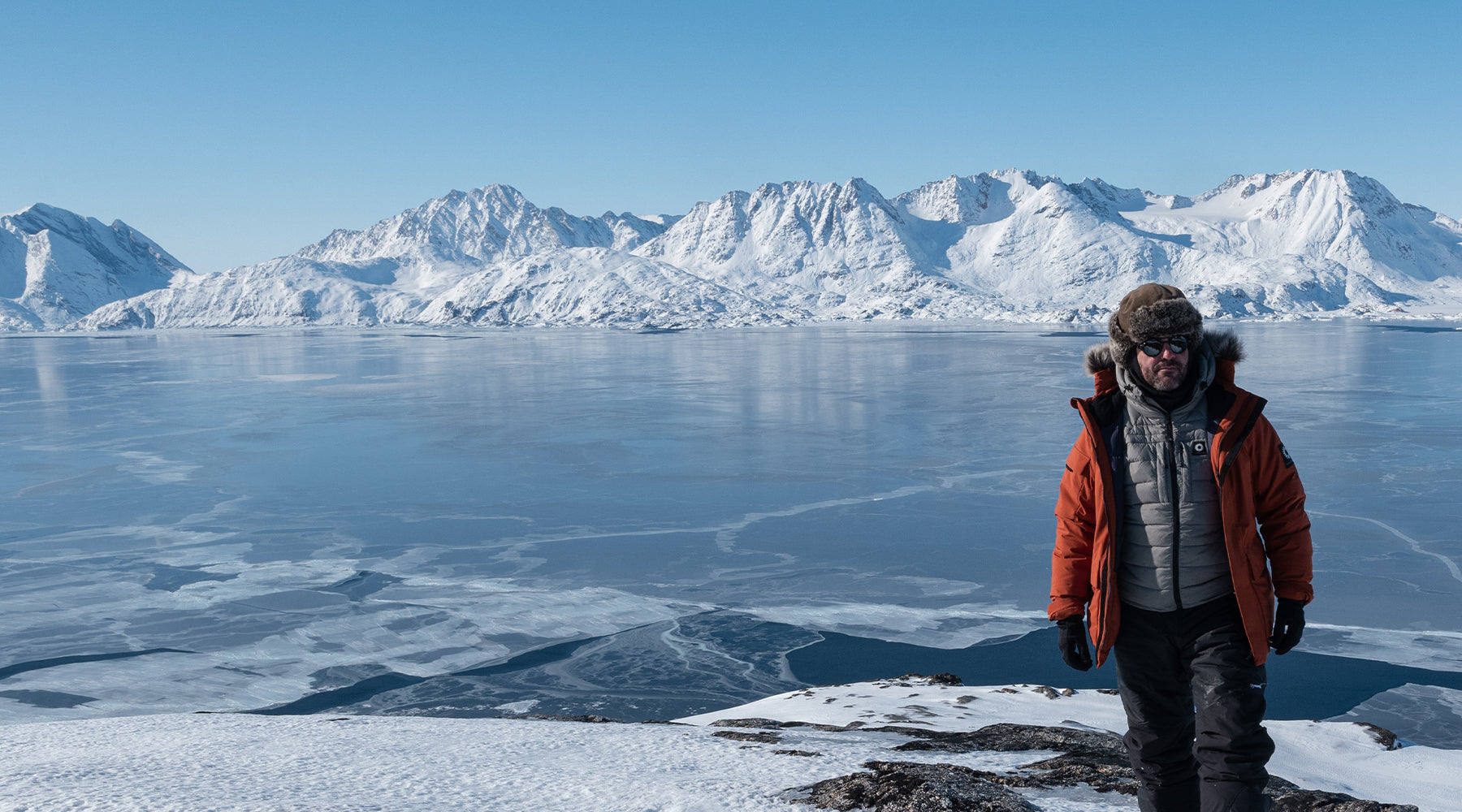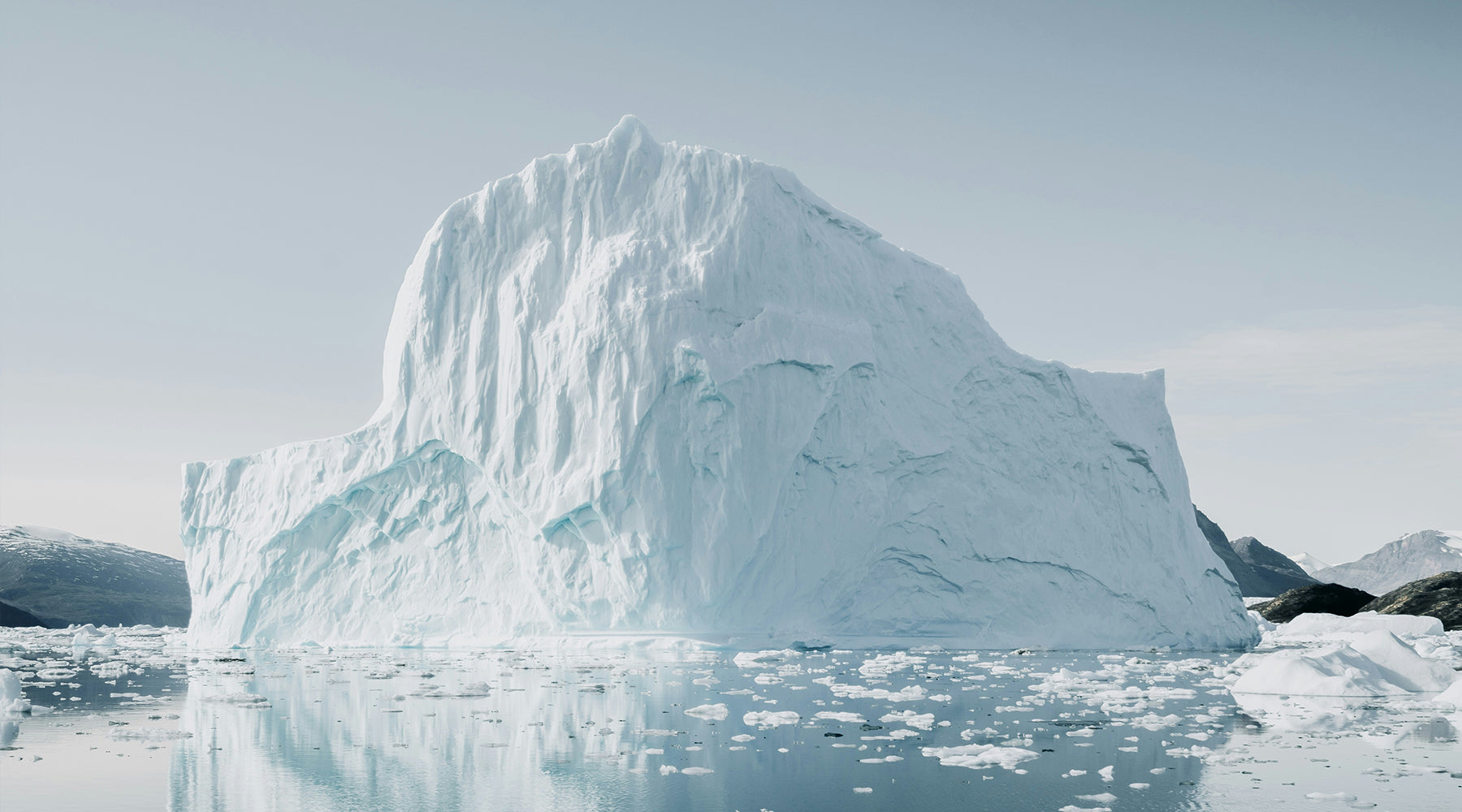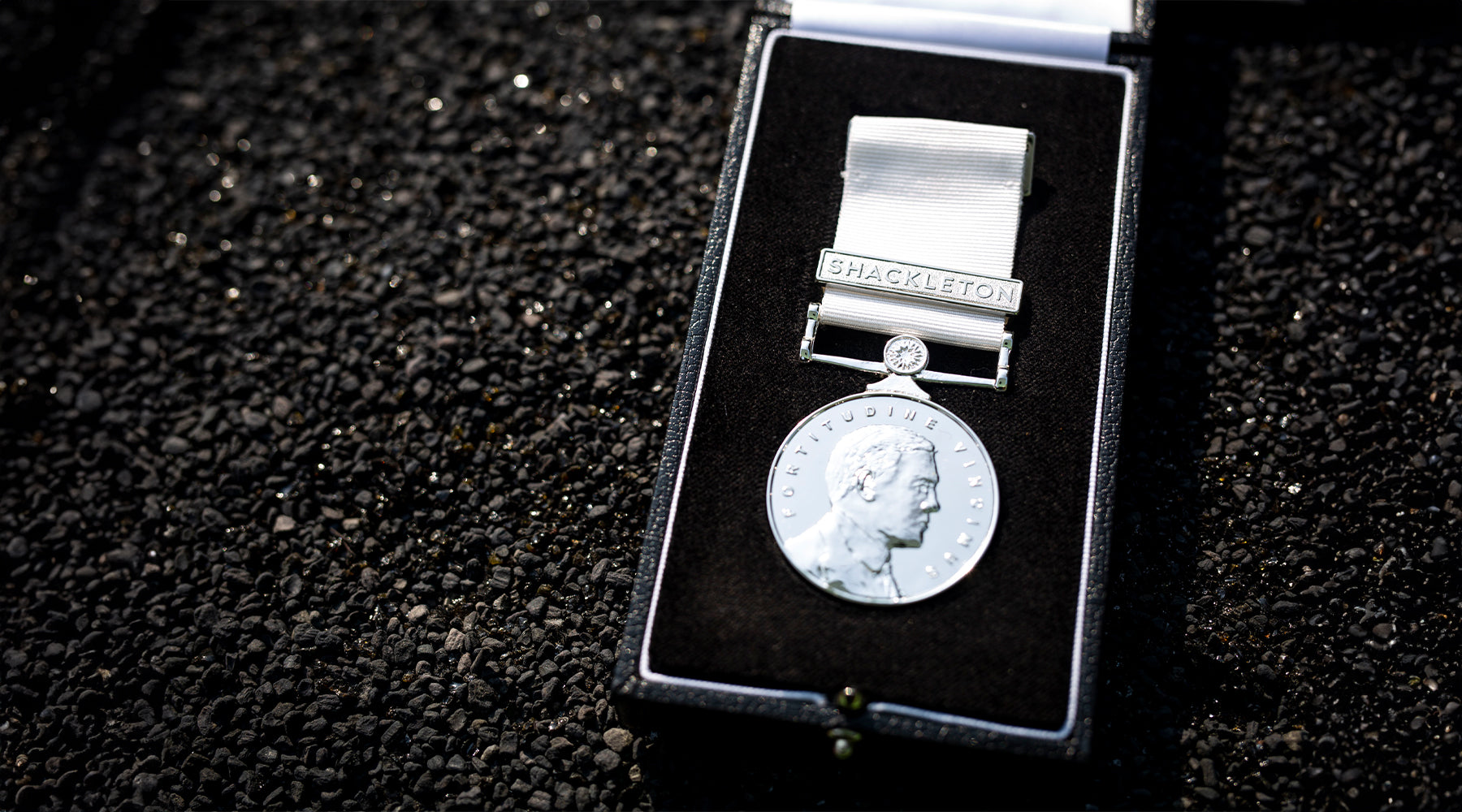
Searching for Polar Bears with Levison Wood
Levison Wood first seized the attention of millions when he walked the length of the Nile ten years ago. As the renowned explorer, photographer and writer joins the judging panel for the Shackleton Medal for the Protection of the Polar Regions, he explains to Rachel Halliburton what he has learnt from his own experiences of the Arctic.
Levison Wood has been threatened at gunpoint in South Sudan, plunged off a cliff in a taxi in the Himalayas, and dropped by parachute into Taliban territory. Yet he describes east Greenland as one of the most challenging environments he’s experienced. When he and his Inuit guides were searching for polar bears to film, freak weather conditions had driven the polar bears into areas so remote that at first they couldn’t find them. Like most people he knew that the Arctic’s warming four times faster than the rest of the planet – but once he was there he could feel the extent to which he was in a landscape on the brink.
‘The weather’s so changeable that even the Inuits who live there all the time can’t predict what’s going to happen,’ he says when we meet in Battersea. ‘We were on tiny boats and it only takes a shift in the direction of the wind for the ice to come and trap a boat. We were trapped for a couple of days. When I was asking if we’d be able to travel today or tomorrow, they were saying, “we’ve got no idea. We’ll have to play it by ear.”’
Searching for polar bears
The moment in the Channel 4 TV series (Levison Wood: Walking With… ) when they finally spot a polar bear is a remarkable one. Far in the distance, it at first looks less like a real animal than a bear sketched in dark lines against the horizon. There’s a sense of the muscularity of its movement as the strangely long head stretches up to sniff the air to work out who the interlopers are. Polar bears can smell a seal on the ice from as far as 20 miles away, and at the same time as you feel the thrill of Wood and his guides as they see it, you sense the tragic dignity of an existence in peril.
Wood has consciously inserted himself into the tradition of explorers who act as witnesses to the changing world around them. He was in his late teens when he read the works of Patrick Leigh Fermor – who famously walked from the Hook of Holland to Istanbul on the eve of World War II.
Solvitur ambulando
He was also inspired by Eric Newby (whose works include A Walk In The Hindu Kush), Norman Lewis, (who wrote about places ranging from Vietnam to Sicily, and was described by Graham Greene as ‘one of the best writers…of our century’) and Homer. ‘I’ve always been fascinated by Greek mythology,’ he says, ‘ever since my dad read me the Tony Robinson and Richard Curtis version of The Odyssey when I was 10. That kind of peripatetic philosophy always appealed to me – solvitur ambulando (it can be solved by walking) – the idea that you can think through any of life’s quandaries by going on a long walk.’
Wood has certainly lived according to his philosophy. He has travelled and filmed in more than 100 countries on expeditions that have included hitch-hiking the Silk Road, walking the length of the Nile, and circumnavigating the Arabian Peninsula. In doing so the former British Army officer has won accolades from figures including Ranulph Fiennes, Peter Frankopan and Michael Palin. Because of his achievements in photography he has become an ambassador for Leica, and he also does charity work for UNICEF, The Tusk Trust, The Glacier Trust and ABF The Soldiers’ Charity.
While there’s no doubting his hero credentials, one of the striking aspects of Wood’s writing and filming is that he’s almost happiest when focusing on other people, not least his guides, whether they’re leading him up the Nile or taking him across an Arctic landscape. When he’s in Rwanda, he writes extremely movingly about his sense of the trauma that one guide, Amani, a Tutsi, is trying to conceal as they travel through landscape still marked by the Rwandan civil war.
Eating seal liver
Filming in Greenland, he grapples with very different challenges, as his guides encourage him to eat seal liver and (the abundant) minke whale. ‘They don’t often let foreigners go with them beyond the tourist areas, so it was a privilege to hang out with them so long,’ he says. ‘They have no interest in television either. So you’d try and direct them to a certain point and ask “Can you tell us about this?” But they wouldn’t – which I quite liked, because it meant you couldn’t create a narrative, you had to really show what you could see.’
This year Wood is going to the Antarctic for the first time. While he’s extremely excited to visit one of the few parts of the world he hasn’t travelled before, he freely admits he wouldn’t be interested in a solo trek across the continent. ‘I’d much rather do something like that with a team,’ he says. ‘Or I’d like to meet the scientists out there, go and engage with the kind of person who wants to spend six months researching in that environment.’
Like all contemporary explorers, Wood is passionate about fighting climate change. In a recent newspaper interview, he asserted, controversially, that he didn’t think that should mean that people should stop getting on planes.
Only connect
He explains, with characteristic lucidity that while ‘we’re living at this critical juncture where we know there’s a problem’, but one of the most important things is to get people ‘to reconnect with nature and see ourselves as part of it. You don’t care about stuff unless you’re really connected to it. Our airline industry only contributes around 2.5% to carbon emissions. Without travel people would be less likely, for instance, to invest in major conservation projects. If you’re really interested in the environment, stop eating meat.’
It seems likely that if Shackleton were to pitch up in London today, Wood could probably match him, story for story. What would he do if they were to meet? He laughs. ‘I’d probably take him to somewhere like Mr Fogg’s. I think he’d find it hilarious, that more than 100 years later we’re still venerating that kind of travel. But the Golden Era of Exploration exerts a huge power. Even though it doesn’t exist anymore, it continues to shape us.’


